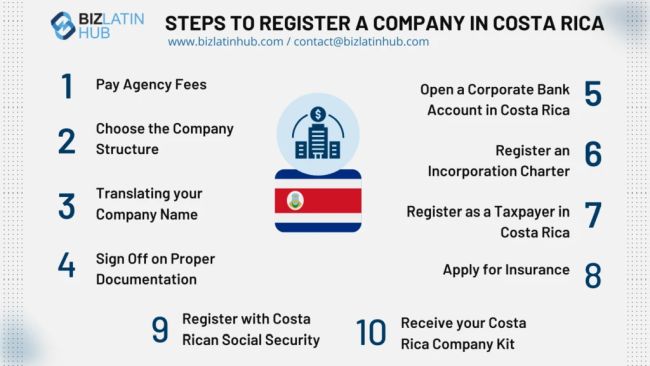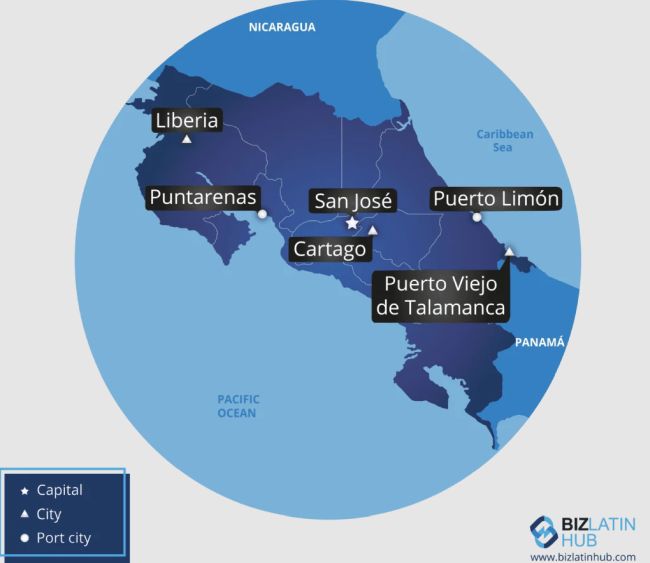Costa Rica is full of business-friendly policies, making all processes involved with 'doing business' relatively easy and straightforward. Governmental policies encouraging foreign investment and a 3.6% GDP growth projected for 2018 have allowed Costa Rica to position itself as one of the great commercial jurisdictions in both Central and Latin America.
With a raft of regional trade agreements across the globe and policies that welcome foreign participation, investors find Costa Rica one of the most open countries in Latin America for business. Before beginning operations in Costa Rica it is vital to know what kind of legal structure works best for your business needs.

In this article, learn about the different types of companies in Costa Rica and how to register a company
Different Legal Entity Structures in Costa Rica
The (3) most common legal entities in Costa Rica are:
- The Corporation/Joint Stock Company (Sociedad Anónima – S.A)
- The Limited Liability Company (Sociedad de Responsabilidad Limitada – S.R.L)
- The Branches
Corporation/Joint Stock Company (Sociedad Anónima – S.A):

A map of Costa Rica and its main cities for an article about types of companies in Costa Rica
The S.A. is the most common legal entity structure in Costa Rica. See below some of its key characteristics:
- A Public Document must be drafted with the bylaws and signed by the Public Notary and company shareholders.
- A minimum of (2) shareholders are required.
- There is no established minimum capital.
- A board needs to be appointed, consisting of three board members and a controlling agent.
The availability for the company name needs to be checked with the National Registry Database.
Limited Liability Company (Sociedad de Responsabilidad Limitada – S.R.L):
The Limited Liability Company has the same requirements as the S.A., with the only exception being the administration; shareholders are required to appoint at least one General Manager. Shares are called ¨quotas¨ and there is no minimum required capital, however, the amount subscribed must be divisible by 100. The company name availability must also be checked on the National Registry database.
Branches of Foreign Companies:
Branches of foreign companies are incorporated with a public deed and signed by the Public Notary and the power of attorney of the foreign company. Due to the complexities of drafting and signing all of the agreements, this legal structure is not recommended for SMEs. Apart from the requisites asked by the National Registry, it is also considered more expensive than other legal entities in Costa Rica.
Originally published 23 July, 2018 | Updated on: 05 October, 2022
The content of this article is intended to provide a general guide to the subject matter. Specialist advice should be sought about your specific circumstances.

